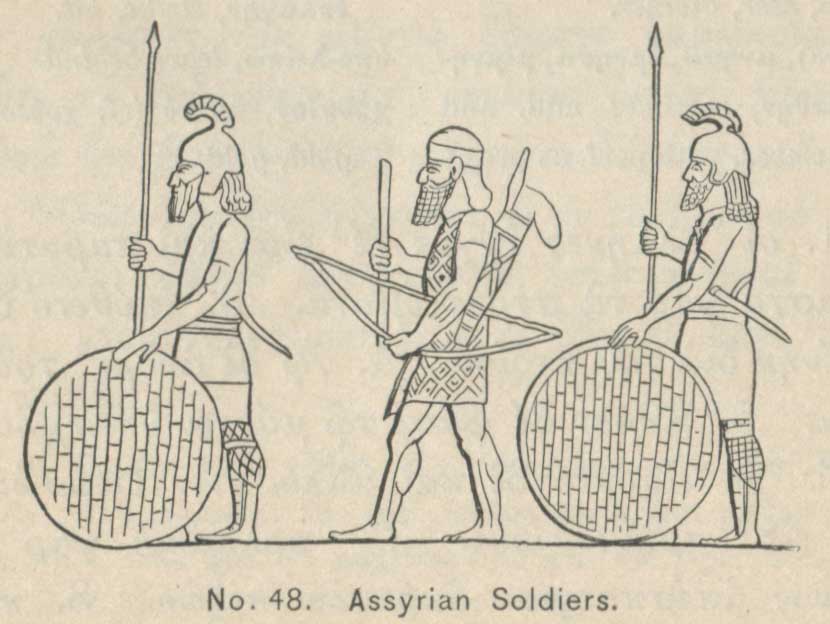THE FIRST GREEK BOOK
BY JOHN WILLIAMS WHITE, PH.D, LL.D., LITT.D.
Professor Of Ancient Greek At Harvard University
This Revision Copyright ©2012 by Shawn Irwin
Lesson LXVIII - Second Perfect System
S633. The second perfect system includes the second perfect and second pluperfect active.
S634. Conjugate the second perfect system of λείπω, leave, in 774.
Give its synopsis.
a. Note the exceptions to the principle of recessive accent (53), λελοιπέναι, λελοιπώς.
S635. The stem of the second perfect is formed by adding the tense suffix α (pluperfect ε)
to the reduplicated verb stem, as γράφω (γραφ), write, second perfect stem γέγραφα.
the second perfect and second pluperfect follow the inflection of the first perfect system (768).
S636. Some verbs aspirate a final labial or palatal mute of the verb stem, changing π and
β to φ, and κ and γ
to χ. See 114.
S637. In the verb stem, ε becomes ο, as πέμπω (πεμπ),
send, πέπομφα; α is sometimes lengthened to ᾱ or η,
as φαίνω (φαν), show, πέφηνα, have appeared (intransitive); ι,
with present stem in ει, becomes οι, as λείπω (λιπ), leave,
λέλοιπα.
S638. VOCABULARY
ἀνδράποδον, ου, τό, slave, esp. captive taken in war.
βλάπτω, (βλαβ), βλάψω, ἔβλαψα, βέβλαφα, βέβλαμμαι, ἐβλάφθην and ἐβλάβην, injure, hurt, harm.
εἰκαζω, (εἰκαδ), εἰκάσω, εἴκασα, εἴκασμαι, εἰκάσθην, liken,suppose, conjecture.
λάθρᾳ, adverb, covertly, without the knowledge of.
νάπη, ης, ἡ, ravine, glen.
ὄχθη, ης, ἡ, height, bank, bluff.
πλήν, conjunction, except; improper prepostion with genitive, except.
πλησίος, ᾱ, ον, (compare πλησιάζω), near; neuter as adverb, πλησίον, near.
πῦρ, πυρός, τό, fire.
σημαίνω, (σημαν), σημανῶ, ἐσήμηνα, σεσήμασμαι, ἐσημάνθην, give the signal, make known.
τήκω, (τακ), τήξω, ἔτηξα, τέτηκα, ἐτάκην and ἐτήχθην, melt; intransitive, thaw, melt.
S639.
1. τὰ δὲ ἄλλα εἰς τό πῦρ ἐρρίφαμεν.
2. τοῖς οὖν θεοῖς χάρις ἔστω ὅτι ἡμᾶς οὐ βεβλάφᾱσσιν οἱ πολέμιοι.
3. εἴκαζον τὴν χιόνα τετηκέναι˙ καὶ ἐτετήκει διὰ κρήνην ἣ πλησίον ἦν ἐν νάπῃ.
τετηκέναι Infinitive in indirect discourse (469).
4. εἶπον ὅτι Κῦρον ἀπεκτόνοι βασιλεύς.
5. φυγῇ ἔφη αὐτοὺς λελοιπέναι τό χωρίον.
φυγῇ Dative of manner (866).
6. ᾔσθετο γὰρ τοὺς πολεμίους ἤδη εἰληφότας τὰ ἄκρα.
7. πεπόμφᾱσί με ἄνδρες πιστοὶ ὄντες Κύρῳ καὶ ὑμῖν εὖνοι.
8. ἐν δὲ τῇ πολεμίᾳ διατέτριφεν ἡμέρᾱς πολλάς.
πολεμίᾳ, Scilicet χωρᾳ
9. λάθρᾳ δὲ τῶν στρατιωτῶν ἐπεπόμφει Κύρῳ ἄγγελον.
στρατιωτῶν The genitive depends on the adverb λάθρᾳ (856).
10. τοὺς πεζοὺς ἐπὶ ταῖς ὄχθαις τέταχεν ἄνω τῶν ἱππέων.
ἱππέων The genitive depends on the adverb ἄνω (856).
11. Κῦρος οὔτε ἄλλον πέπομφε σημανοῦντα ὅ τί χρὴ ποιεῖν οὔτε αὐτὸς πέφηνεν.
σημανοῦντα The participle expresses purpose (495,4).
12. ταύτην τὴν χώρᾱν ἐπετετρόφει διαρπάσαι τοῖς Ἑλλησι πλὴν ἀνδραπόδων.
διαρπάσαι The infinitive expresses purpose (461, 7).
S640.
1. The enemy have not escaped.
2. He has sent many gifts to Menon.
3. But the satrap had written a letter to the king.
4. He said that he had sent a guide to the army.
5. He announces that the guide has stolen the money.
S641. Advance. The Great Trench.
ἐντεῦθεν Κῦρος ἐξελαύνει συντεταγμένῳ τῷ στρατεύματι
παντι καὶ τῷ Ἑλληνικῷ καὶ τῷ βαρβαρικῷ. ᾤετο γὰρ ταύτῃ
τῇ ἡμέρᾳ μαχεῖσθαι βασιλέᾱ˙ κατὰ γὰρ μέσον τὸν σταθμὸν
τοῦτον τάφρος ἦν ὀρυκτὴ βαθεῖα, παρετέτατο δὲ ἄνω διὰ
τοῦ πεδίου μέχρι τοῦ Μηδίᾱς τείχους. ἦν δὲ παρὰ τὸν
Ἑυφράτην πάραδος στενὴ μεταξὺ τοῦ ποταμοῦ καὶ τῆς
τάφρου˙ ταύτην δὲ τὴν τάφρον βασιλεὺς μέγας ποιεῖ ἀντὶ
ἐρύματος, ἐπειδὴ πυνθάνεται Κῦρον προσελαύνοντα.
συντεταγμένῳ τῷ στρατεύματι: with his troops formed in line of battle, a dative of accompaniment (869).
κατὰ τοῦτον: about the middle of this days march.
παρετέτατο: pluperfect passive of παρα-τείνω
προσελαύνοντα: participle in indirect discourse (628).

See the route on the map.
End Of Chapter
INDEX
Chapter 69
HOME
This Revision Copyright ©2012 by Shawn Irwin
